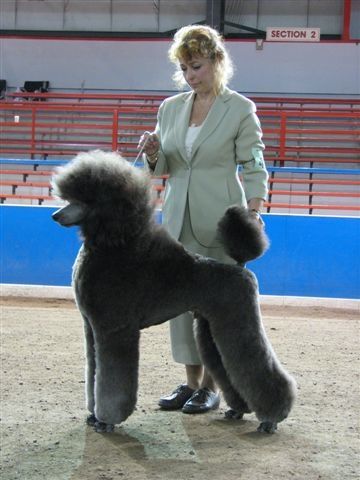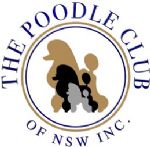Healthy Poodles

Healthy Poodles
Well bred Poodles enjoy a good overall level of health. This is because Poodles come from tough original breeding stock and because responsible Poodle breeders have been making great efforts to keep the breed healthy in the modern era.
As with other breeds, and indeed all livestock and even humans, the Poodle population carries in its gene pool a number of hereditary health conditions. Responsible breeders have been using their observation skills as well as current veterinary and genetic information to keep these conditions to a minimum.
THE BEST WAY TO OBTAIN A HEALTHY POODLE IS TO GET ONE FROM AN ANKC REGISTERED BREEDER WHO PARTICIPATES ACTIVELY IN THE STRATEGIES TO MAINTAIN A HEALTHY BREED.
ANKC is the Australian National Kennel Council. Each Australian State and Territory has its own organisation that accepts registrations on behalf the ANKC.These are Dogs West (for WA), Dogs SA (South Australia), DOGS VICTORIA, DOGS TASMANIA, Dogs ACT, DOGSNSW, Dogs Queensland and Dogs NT. They all have easily found websites that provide contact details.
What the Poodle Club is doing to support responsible breeders
In March 2012 the Poodle Club of NSW worked with a major genetic testing company to run a webinar (online seminar) on canine genetics and the current understanding of hereditary diseases. The webinar enjoyed the participation of over 80 Poodle fanciers.
On 21 May 2012 the Club invited Dr Karen Hedberg B V Sc to lead a presentation to a Club meeting on Poodle health issues.
Dr Hedberg kindly provided a copy of her discussion paper on this subject and then spoke extensively, answering the many questions put to her by those present.
The Summary from Dr Hedberg’s discussion paper is quoted here in full:
“Any breed improvement scheme needs long term goals. This starts with full acceptance by the breed club/s of a need to test for an inherited disease, as well as agreement on the test to be used (or those that are acceptable) on a national basis. All animals must be individually identifiable by a microchip or a unique tattoo from a nationally based tattoo scheme. The implementation of testing is then followed by the application of LRLs* (and ideally pedigree endorsement**) by the ANKC after a national referendum to have the restriction applied.
“We have numerous breeds that have been testing diligently for many years and have little to show for it, often due to poor collation and/or use of data. We (the ANKC and the State CCs) should be far more involved in getting this information together, out to the breeders and also to help educate the public on the efforts being made to produce sounder animals.”
* NOTE: LRL = Litter Registration Limitation. This involves a requirement to test and establishing a “pass’’ benchmark.
** NOTE: the Club noted that it receives complaints from time to time about DNA profiling being inconsistent with pedigrees.
Some key points raised by Dr Hedberg were:
Maintain your gene pool - Each breed has a limited gene pool. Use genetic testing to develop strategies to progressively reduce the incidence of hereditary problems but don’t use it to do wholesale culling that significantly reduces genetic diversity. The wholesale approach is equivalent to “hitting yourself on the head” or “throwing the baby out with the bathwater.”
Be strategic - Some recessive conditions can be tested for (eg Neonatal Encephalitis - NE) and where a line is known to carry it a test is useful to avoid inappropriate matings. Again, culling all carriers will not support the overall objective of maintaining as much diversity in the overall gene pool as possible.
Establish priorities – Decide what are the main issues in your breed - which ones must be tested for, and which ones are best managed by reporting and recording cases as they occur.
Gain confidence - It is important for breed clubs to establish a record/report system that has the confidence of responsible breeders. This may mean setting up third party (eg ANKC) operated data bases. Quality data which is based on a good reporting system allows breed Clubs to provide sound advice to breeders and the public.
Dr Hedberg made the following suggestions about setting priorities for the Poodle:
Test or Report/Record Table
|
SIZE/VARIETY |
TEST |
REPORT |
|
Toy Poodle |
Eye clearance* PRA/PRCD |
Patella Luxation Addison’s Cushings Hypothyroidism Legg Perthe’s (sometimes mis-identified as HD) Epilepsy |
|
Miniature Poodle |
Eye clearance* PRA/PRCD |
Patella Luxation Addison’s Cushings Hypothyroidism Epilepsy Hip Dysplasia |
|
Standard Poodle |
Eye clearance* Hip Dysplasia Neo-natal encephalitis (NE) See comment above about NE |
Von Willebrand’s Disease** Addison’s Cushings Hypothyroidism Bloat Sebaceous Adenitis Cardiac Renal Dysplasia*** |
* NOTE: Dr Hedberg recommended that physical eye testing be done as well as DNA tests, as there is a range of important eye diseases that can be picked up in a physical test that a DNA test will not identify.
** NOTE: There is a low incidence of vWD in SPs and it is mainly Type I. The bad vWD is Type III.
*** NOTE: Dr Hedberg noted that RD (Renal Dysplasia)is thought to be a dominant gene with variable penetrance. Even if a puppy has the gene the extent of effect is not predictable at this stage of our knowledge. It is also necessary to be aware that being associated with the development of the kidneys, it hits – if at all - at different stages of development of the kidneys. Until we have more information about RD Dr Hedberg recommended that breeders record and report all incidences of RD and that the Poodle Club monitor what is happening with data from the United States (given the larger number of Poodles there) so that a Breed Advisory can be developed when we know more.
NEXT STEPS
Priorities & Strategies – How can we best use information as set out in the above table?
DATA –Club members can develop a way of recording breed health data using a 3rd party (ANKC?) that they are happy with and that supports responsible breeders.
Record/Report - Dr Hedberg suggested that the Poodle Club could look at the reporting forms and systems being used by the French Bulldog Club of NSW and the NSW German Shepherd Dog League.
Carrots vs sticks – Carrots work best. Eg The Poodle Club can support responsible breeders by setting up puppy listings and stud dog listings on the Club website with features that reward members who manage health issues responsibly.
Tools for breeders – These may include publishing information about what to expect from various tests, record/report forms, info about reliable tests for carrier pups, and formats for what to say to puppy buyers.
NEWS FROM CANADA
RENAL DYSPLASIA
Since the above link was placed here, further news was received from the Poodle Club of Canada by email on 15 January 2013 in regard to Renal Dysplasia research. It appears that an article was provided by the Public Library of Science (US National Library of Medicine) to PLoS ONE, a peer-reviewed open access journal. The article expressed concern about some aspects of the published renal dysplasia research. Briefly, concern is expressed about the accuracy of description of genetic material, the study design itself, the validity of the control population and the strength of the evidence. You can find the article at
http://www.ncbi.nlm.nih.gov/pmc/articles/PMC3493546/
PC Canada has sought further information about the matter from the publishers of the original research and they are awaiting a reply.
FOR MORE INFORMATION CONTACT THE SECRETARY
Another interesting source of information about managing the gene pools of pure bred dogs can be found at the website of The Institute of Canine Biology at http://www.instituteofcaninebiology.org/index.html
LATE ONSET PRA ( INFORMATION FROM ORIVET WEBSITE )
Late onset PRA-CRD4 - an inherited eye disease affecting dogs. PRA-crd4 occurs as a result of degeneration of both rod and cone type Photoreceptor Cells of the Retina, which are important for vision in dim and bright light, respectively. Affected dogs can show symptoms of vision loss or have signs of retinal disease on veterinary ophthalmologic exam by 3 years of age. However, age of onset varies significantly in PRA-crd4 affected dogs, and has been reported from 1 to 15 years of age. Mutations in the RPGRIP1 gene show Incomplete Penetrance, meaning that not all dogs inheriting two copies of the Mutation develop clinical disease. This suggests that other unknown genetic or environmental factors may play a role in modifying disease development and progression.
Merle Gene
The Merel gene is not a naturally occurring gene in Poodles. this gene causes major health problems and a lifetime of vet visits for the dogs affected with the Merle gene. How does the Merle gene occur, via cross-breeding with animals who do have a Merle gene. Registered Poodles must have two registered same-breed parents( this includes the same size). The gene is insidious in that in some colours it is very difficult to detect which is why genetic testing specifically for the merle gene is a requirement.
In December 2022 The Poodle Club of NSW Inc. made recommendations to Dogs Australia to require ALL poodles registered in Australia be required to have a FULL DNA panel of Both parents, this panel must include the Merle Gene testing Before registration is granted. This will ensure the continuing betterment of our heritage breed. And the health and well-being of our poodles. This recommendation is currently before Dogs Australia.
